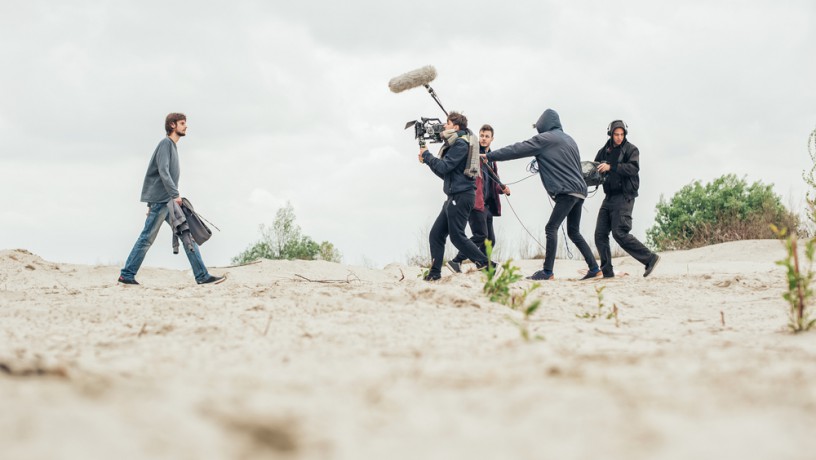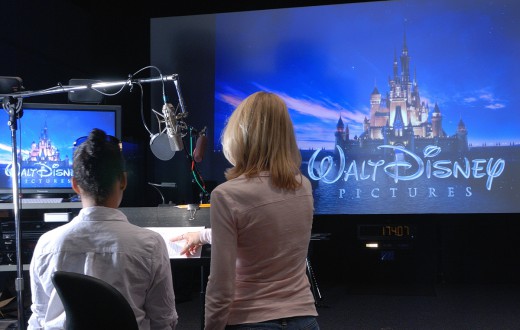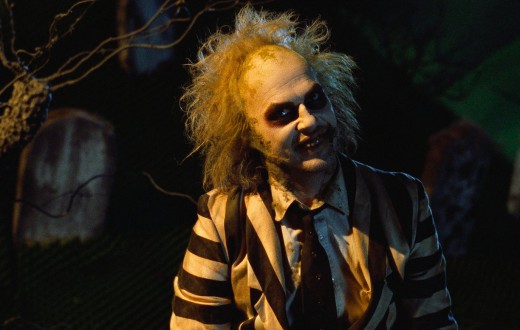It is an undeniable truth that acting as a career is very much a hit or miss proposition. That’s why your mom tried to discourage you from choosing the path you’re on: not out of any maliciousness or desire to see her precious offspring unfulfilled in life. Just simply because a steady 9-5 job in accounts receivable is a whole lot more stable and secure than the life of an actor. And she worries about you. You should call her. Do it now, I’ll wait.
Anyway, so job security is out, for people like us. On the other hand, we are embarked on an adventure that offers infinitely greater potential heights of creativity and joy than any accounting job ever could. Hopefully you explained that to your mom just now.
And while it is true that there will always be gaps in your work, downtime when you have nothing lined up as far as paying gigs go, that doesn’t mean that you have to turn off your creativity. Especially in this day and age when self-promotion is so vital to building a brand and a career, there is absolutely no reason you shouldn’t be creating your own work during the inevitable lulls between castings.
So why aren’t you making a film, right now, this very second? Here are some ideas to get you started!
1. Start small
Did you know that Wes Anderson, madman director extraordinaire of “Rushmore” and “The Royal Tennenbaums” et al got his start making a 13-minute version of his first film “Bottle Rocket” with a few of his buddies? Clowning around one summer with his friends turned into one of the most unique and beloved indie careers the film world has ever seen. Oh, and those buddies? Yeah, Owen and Luke Wilson, neither of whom has done all that badly for himself. Yes, of course it is intimidating to just decide you’re going to make a film. No one is suggesting we can all be the next Wes Anderson. But keep in mind that scale is the key here. Even if you didn’t study filmmaking in school, even if you have no experience whatsoever, there are still plenty of outlets that make it extremely easy for even rank amateurs to get started creating their own projects. Snapchat and Instagram offer a couple of venues for micro-films, and of course the venerable YouTube has no limit on how short an upload can be. Tell a joke, debut an original character, run some original dialogue with a friend. These are all small ways you can keep your instrument in tune during periods when the paid work is running dry. And remember, every great film and play started with a single word–you might be surprised where just hunkering down and starting to write a micro-short can lead!
2. Research
So you say you don’t know the first thing about filmmaking. Have you ever heard of the library? How about the internet? Just because you are out of school doesn’t mean that the time for learning is over. In fact, many would say that going to university is just a way to learn how to learn, and the your real education begins after you graduate. Of course it’s incumbent on you to take charge of your post-graduation education. There is no professor cracking the whip or looming midterm deadline. It’s on you to pick up some books on filmmaking and scriptwriting. Look up sites like IMSDb and read draft scripts of your favorite films–hell, why not film some scenes from them just for fun? The point is that there is so much information out there just waiting for you to go get it; more information is available to more people and from more people than at any time in human history. When you think about it, that fact alone makes the idea of sitting at home waiting for the phone to ring with an offer of a great role seem kind of silly, doesn’t it?
3. Form a network
If you are a working actor–even one who isn’t working at the moment–you almost certainly have a circle of friends and acquaintances who are also actors, writers, and aspiring filmmakers. Remember that collaboration is key to any successful project. With that in mind, don’t be afraid to ask for help on your projects. If you are writing a script, get friends to read it and offer their own ideas for improvements, and later get them to hang out and read it aloud, perhaps even taking it to the point of filming the finished product. In turn you should be not only prepared, but eager to help out your friends when it comes time for them to develop their own projects. There is nothing greater in the world for a creative person than having a reliable support system, a group of people whom you can trust not only to help when they are needed, but also to provide constructive criticism in the birthing process of a new piece of art. The term “safe space” is horribly overused these days in many dumb ways, but when it comes to art, you should strive to create a place where all ideas are worthy of a fair hearing and all critiques are welcome and offered in a spirit of camaraderie and ego-free desire to make the best creation possible.
4. Learn a variety of roles
Not only roles in terms of characters, although you should do that too. Rather, be ready to jump in front of the camera as well as helping out behind the scenes. The dichotomy that is still often taught in theater and film programs that drums into us that we have to choose to be crew or talent and never the twain shall meet is outdated and frankly silly. Creative people are creative, and they can be so in a variety of different ways. Musicians can act and writers can direct, so why not try on a variety of hats when the stakes are low and there is little or no budget or deadline at risk? It’s impossible to know if you are going to be good at something if you don’t try it!
5. Not so secret agency
Finally, the key to remember here is agency. Passivity is poison to the creative arts. As actors we insist on maintaining a degree of agency when we play characters–you aren’t expected to be a mindless puppet or a blank canvas for a director to paint on; you are a thinking, feeling human being with your own ideas and creativity to offer. And what we must do is carry that sense of our own power over to our careers as well. Actively creating is something you can and must do every day. Did you overhear a funny or strange conversation in the coffee shop? Jot it down. Did you pass a building or street corner or shop that brought a scene to mind? Take a picture. Shoot a short video. As a creative actor you should be building a literal and/or digital notebook of ideas, images, characters and even random thoughts that you might be able to use at some point down the road. Create every day! So what are you waiting for?







